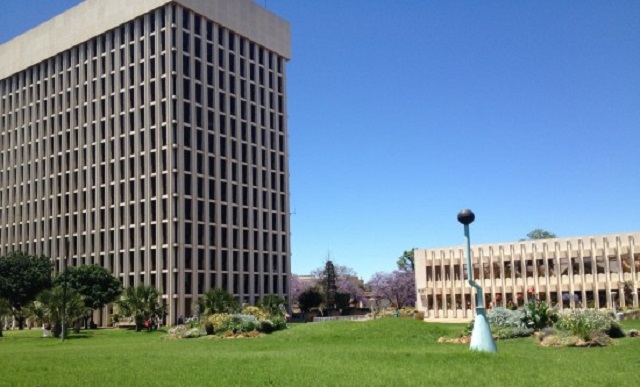EDITORIAL COMMENT: NRZ is getting back on its rails

The $400 million Government-Diaspora Infrastructure Development Group-Transnet deal has now been consummated with the arrival of some rolling stock from South Africa over the weekend.
The delivery of seven locomotives, 108 wagons and eight passenger coaches on Saturday is the first of more to come in the next few days, and months under the agreement. President Emmerson Mnangagwa is expected to commission 200 coaches and 13 locomotives on Friday.
Cognisant of the need to urgently put the National Railways of Zimbabwe (NRZ) back on the rails, the Government and its partners decided to bring some rolling stock on lease from Transnet Freight Rail, a South African rail transport company formerly known as Spoornet, instead of waiting for 18 months by which time the new equipment would have been manufactured and delivered.
NRZ board chairman, Mr Larry Mavima said:
“We have received the initial consignment as we move a gear up towards resuscitating NRZ. We expect more locomotives, wagons and coaches by the end of the week. The whole package includes 10 locomotives, three shunt locomotives, 34 passenger coaches and 200 wagons.
“So far we have ordered new wagons and locomotives, which we expect to be delivered in the next six months and two years respectively. These are the fruits of a new Government led by President Mnangagwa, and our mandate as NRZ is to contribute to national economic development through relatively cheaper transport and logistics facilities.”
The arrival of the first batch of engines and wagons at the weekend is a significant development that highlights yet another achievement by the new Government. It further highlights the Government’s commitment to revive the NRZ, a key entity without which efforts to resuscitate the economy will fail.
It cannot be an overstatement for us to say that at this time, the NRZ is on its knees. It is moving around 2,8 million tonnes of cargo per year, down from 18 million tonnes 20 years ago. It is failing to pay its workers, resulting in salary arrears dating back 17 months. Its rail network is replete with cautions, the road equivalent of potholes, that slow down traffic and causes derailments. The communication system along its lines is non-existent.
Before the arrival of the leased equipment, the NRZ had 60 working engines, with 108 out of service. It had 3 512 wagons in service with around 3 500 not working. The locomotives are not only few; they are also too small to haul heavier cargo hence, from time to time, sister utilities have been kind to lend the parastatal their engines to move some freight.
But we are witnessing a turnaround at NRZ.
The Government recently agreed to assume the transporter’s $348 million debt. Also, the Government will not charge duty on spare parts imported by the utility. The 12-month waiver started on January 1 and ends in December this year. This will go a long way in facilitating ongoing efforts to repair rolling stock and critical equipment and machinery at the NRZ. Imposing duty would have made the spares more expensive, thus hampering recovery efforts that are underway.
But delivering new, shiny locomotives and wagons to run on a creaking rail network would have done nothing to improve the service at the parastatal. The Government and its partners are aware of this. Of the $400 million, $128 million will be spent on upgrading the rail tracks, an estimated 255km of which needs immediate attention. About $72 million will be used to revamp the communication system.
This is a wholesome strategy that, coupled with efforts being made to clear salary arrears, will get the trains running again. These will enhance efficiency of the NRZ. Cargo would be moved on time and derailments likely to be minimised.
If the efficiency is enhanced, we don’t think there would be any need for the Government to come up with legislation to force bulk cargo movers to use rail, not the road. If trains are moving efficiently, rail will be always cheaper than road haulage. It has an added advantage of being able to move larger quantities of cargo at one go. Therefore, more clients will naturally go for rail instead of haulage trucks which will obviate the need for a piece of legislation ring-fencing bulk freight to NRZ.
But it is an issue for possible further discussion given that the Minister of Transport and Infrastructural Development, Dr Joram Gumbo recently said the Government will not ban trucks from transporting bulk freight before efficiency at NRZ is boosted. This means that the law to ban road transportation of bulk freight is still likely and will only be enacted anytime from now as investment into the parastatal has now begun in earnest.












Comments